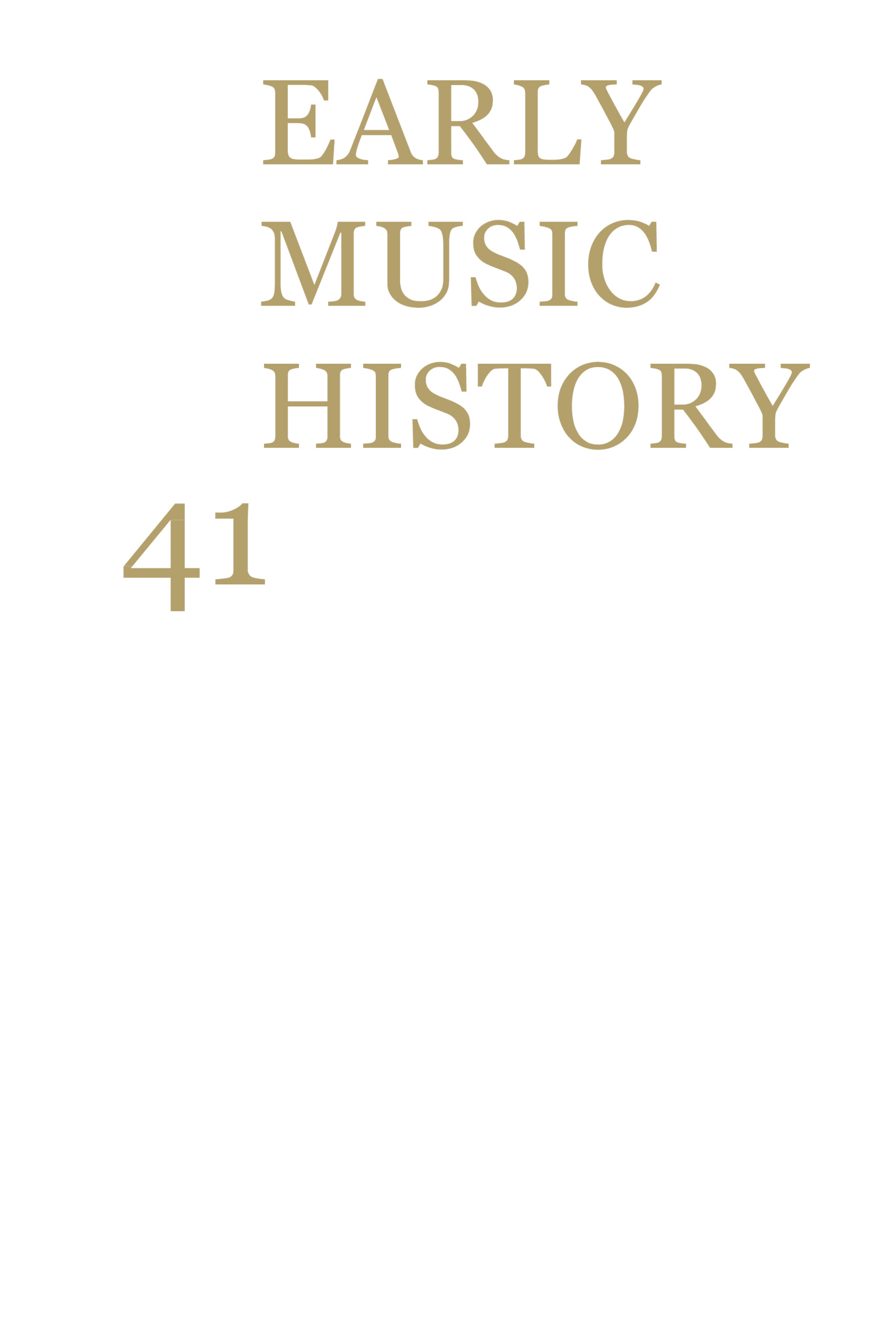Article contents
ENCOMPASSING PAST AND PRESENT: QUOTATIONS AND THEIR FUNCTION IN MACHAUT'S MOTETS
Published online by Cambridge University Press: 24 October 2001
Extract
‘Nous avons encore d'anciennes Chansons de Thibault, Comte de Champagne, l'homme le plus galant de son siècle, mises en Musique par Guillaume de Machault.’J.-J. Rousseau, Dictionnaire de musique (Paris, 1768), p. 81. Rousseau may have been misled by the registration of the manuscripts C and A in seventeenth-century catalogues of the royal library, respectively as: ‘les chansons de Thibault, comte de Champagne, roy de Navarre, mises en musique. Diverses chansons antiennes’ and ‘Les amours de Guillaume de Machaud, en rimes. Poésies de Thibaud, roy de Navarre. La Prise d'Alexandre et autres romans anciens.’ See for these references L. Earp, Guillaume de Machaut: A Guide to Research (Garland Composer Resource Manuals, 36; New York and London, 1995), pp. 78 and 89. With this naive confusion in his Dictionnaire de musique Jean-Jacques Rousseau was not as far off the mark as it might seem; although Machaut (c. 1300-77) certainly did not set to music entire chansons of his famous predecessor, he did quote several times from chansons by Thibaut (1201-53) as a springboard for his own poetical and musical thoughts.In motets 3, 4, 5 and 15, as will be seen in the following discussion.
- Type
- Research Article
- Information
- Copyright
- © Cambridge University Press
- 14
- Cited by


